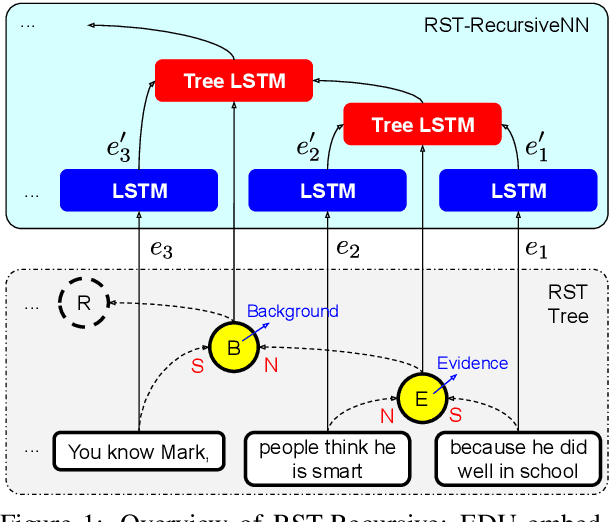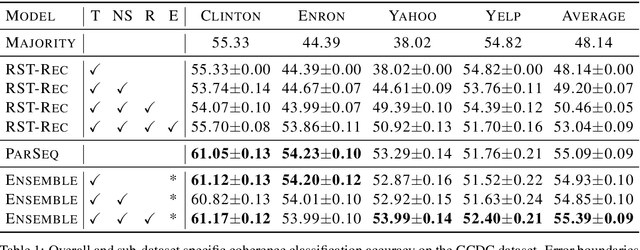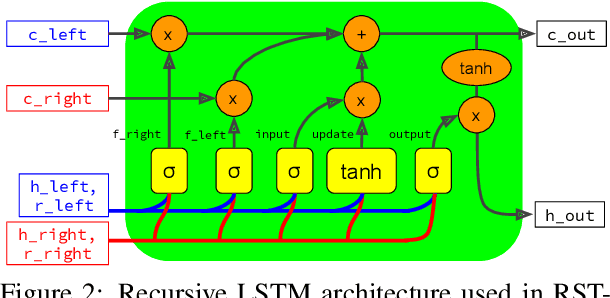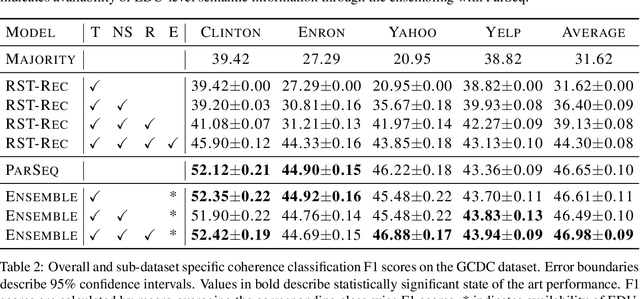Neural RST-based Evaluation of Discourse Coherence
Paper and Code
Sep 30, 2020



This paper evaluates the utility of Rhetorical Structure Theory (RST) trees and relations in discourse coherence evaluation. We show that incorporating silver-standard RST features can increase accuracy when classifying coherence. We demonstrate this through our tree-recursive neural model, namely RST-Recursive, which takes advantage of the text's RST features produced by a state of the art RST parser. We evaluate our approach on the Grammarly Corpus for Discourse Coherence (GCDC) and show that when ensembled with the current state of the art, we can achieve the new state of the art accuracy on this benchmark. Furthermore, when deployed alone, RST-Recursive achieves competitive accuracy while having 62% fewer parameters.
* 8 pages, 5 figures, to be published in AACL 2020
 Add to Chrome
Add to Chrome Add to Firefox
Add to Firefox Add to Edge
Add to Edge